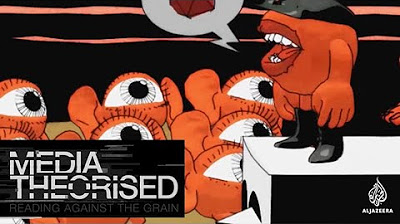What is Hell? | Jonathan Pageau
Summary
TLDRThe script explores the concept of 'Hell' as a side effect of sin rather than a creation. It differentiates between death and the fiery imagery associated with Hell, suggesting that death is a natural decomposition, while Hell's fire symbolizes God's presence. The Orthodox view is that Hell's fire is the same as Pentecost's, representing God's full presence. Those who embrace God's grace are transformed, while those who resist are consumed by the divine fire, highlighting the importance of personal agency in accepting or rejecting divine love and transformation.
Takeaways
- 💀 Hell is closely associated with death, often referred to as Hades, which represents decomposition and the breaking apart of things.
- 🔥 The fire of Gehenna or the lake of fire is distinct from hell; it represents the consuming presence of God.
- 😈 Hell is not something created directly, but rather a side effect of sin and missing the mark.
- 🌍 Hell is often symbolized as being 'below' to represent decomposition and separation from the divine.
- 🔥 The fire from God's throne can either deify or burn, depending on one's openness to transformation.
- 🙏 The fire of Pentecost and the fire of hell are seen as the same in Orthodox thought, both representing the fullness of God's presence.
- 🛡️ Resistance to God's love and grace results in being 'burned' by that very love, which would otherwise be transformative.
- 🌟 Hell is often depicted as the presence of God in all things, but it is experienced differently based on one's openness to grace.
- 🤝 There is a strong emphasis on personal agency in deciding whether to embrace God's love or resist it, impacting one's experience of hell.
- ⚖️ The script suggests a perspective where hell and divine love are intertwined, with hell being the consequence of rejecting transformation by God's presence.
Q & A
What is the speaker's perspective on the creation of Hell?
-The speaker suggests that Hell, in the sense of death and decomposition, is not something that was created but rather a side effect of sin and missing the mark of divine intention.
What is the difference between death and the 'lake of fire' according to the speaker?
-The speaker differentiates death as a natural process of decomposition and the 'lake of fire' or Gehenna as a metaphorical place described in religious texts, associated with divine punishment or transformation.
How does the speaker relate the concept of Hell to the presence of God?
-The speaker implies that the fire of Hell could be seen as the presence of God, which can either transform or punish, depending on whether an individual is open to change and divine grace.
What does the speaker mean by 'missing the mark'?
-'Missing the mark' refers to falling short of divine intention or perfection, which leads to the consequences of sin, including death and separation from God.
How is Hell described in the context of Orthodox Christianity, according to the speaker?
-In Orthodox Christianity, Hell is often understood as the fullness of God's presence, which can be transformative for those open to divine grace but punishing for those who resist it.
What is the significance of the 'fire of Pentecost' in the speaker's explanation?
-The 'fire of Pentecost' is presented as the same divine force that can either save or condemn, depending on an individual's openness to God's transformative love.
What role does personal choice play in the speaker's understanding of Hell?
-Personal choice is central, as individuals decide whether to let go of resentment and bitterness to be transformed by divine love or to close themselves off, leading to divine punishment.
How does the speaker interpret the imagery of Hell being 'below' or 'down there'?
-The speaker interprets this imagery as symbolic of decomposition and breaking apart, which are consequences of sin and separation from divine unity.
What is the role of 'agency' in the speaker's discussion on Hell?
-Agency is the capacity of an individual to make choices that determine their spiritual state, either embracing divine grace or resisting it and facing divine judgment.
How does the speaker connect the idea of Hell with the concept of personal transformation?
-The speaker connects Hell with the resistance to personal transformation, suggesting that the divine presence burns away what is resisting change, either purifying or punishing the individual.
What does the speaker suggest about the relationship between love, forgiveness, and Hell?
-The speaker suggests that love and forgiveness can transform an individual, protecting them from the negative aspects of Hell. Conversely, a lack of forgiveness and love can intensify the experience of divine punishment.
Outlines

Esta sección está disponible solo para usuarios con suscripción. Por favor, mejora tu plan para acceder a esta parte.
Mejorar ahoraMindmap

Esta sección está disponible solo para usuarios con suscripción. Por favor, mejora tu plan para acceder a esta parte.
Mejorar ahoraKeywords

Esta sección está disponible solo para usuarios con suscripción. Por favor, mejora tu plan para acceder a esta parte.
Mejorar ahoraHighlights

Esta sección está disponible solo para usuarios con suscripción. Por favor, mejora tu plan para acceder a esta parte.
Mejorar ahoraTranscripts

Esta sección está disponible solo para usuarios con suscripción. Por favor, mejora tu plan para acceder a esta parte.
Mejorar ahora5.0 / 5 (0 votes)






